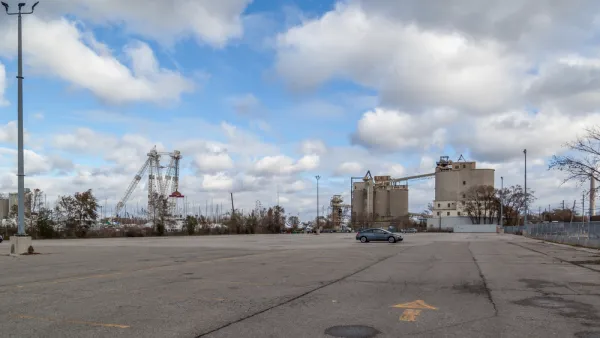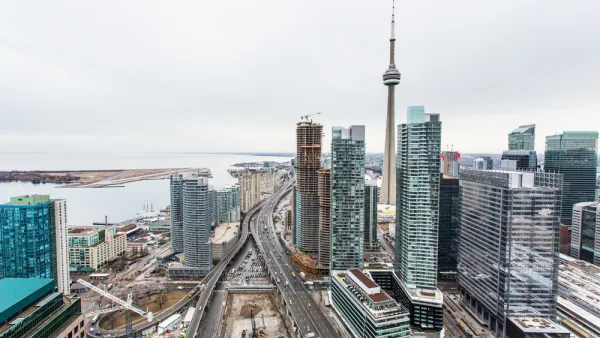The high-profile experiment in smart city planning and technology seems to have suffered a final setback.

Daniel L. Doctoroff, CEO of Sidewalk Labs, posted on Medium this morning to announce that the company is no longer moving forward with its smart cities partnership with Waterfront Toronto.
Sidewalk Labs, a subsidiary of Google parent company Alphabet, had been working to plan and redesign the Quayside district, a 12-acre parcel in Toronto, since 2017.
Sidewalk Labs released the Master Plan for the project in June 2019, encountered controversy, and then scaled the project back in October 2019. In February 2020, the project seemed to have a breakthrough after winning approval from Waterfront Toronto for several large components of the project. The coronavirus delayed hearings on the project in April, and then this news.
Doctoroff explains the decision to cancel the project as a symptom of the economic crisis caused by the coronavirus public health crisis. "But as unprecedented economic uncertainty has set in around the world and in the Toronto real estate market," writes Doctorff, "it has become too difficult to make the 12-acre project financially viable without sacrificing core parts of the plan we had developed together with Waterfront Toronto to build a truly inclusive, sustainable community."
Sidewalk Labs isn't gone for good, however, as Doctorff expresses continuing belief in the concepts of smart city technology, especially in light of the current crisis, and touts the company's other products.
FULL STORY: Why we’re no longer pursuing the Quayside project — and what’s next for Sidewalk Labs

National Parks Layoffs Will Cause Communities to Lose Billions
Thousands of essential park workers were laid off this week, just before the busy spring break season.

Retro-silient?: America’s First “Eco-burb,” The Woodlands Turns 50
A master-planned community north of Houston offers lessons on green infrastructure and resilient design, but falls short of its founder’s lofty affordability and walkability goals.

Delivering for America Plan Will Downgrade Mail Service in at Least 49.5 Percent of Zip Codes
Republican and Democrat lawmakers criticize the plan for its disproportionate negative impact on rural communities.

Test News Post 1
This is a summary

Test News Headline 46
Test for the image on the front page.

Balancing Bombs and Butterflies: How the National Guard Protects a Rare Species
The National Guard at Fort Indiantown Gap uses GIS technology and land management strategies to balance military training with conservation efforts, ensuring the survival of the rare eastern regal fritillary butterfly.
Urban Design for Planners 1: Software Tools
This six-course series explores essential urban design concepts using open source software and equips planners with the tools they need to participate fully in the urban design process.
Planning for Universal Design
Learn the tools for implementing Universal Design in planning regulations.
EMC Planning Group, Inc.
Planetizen
Planetizen
Mpact (formerly Rail~Volution)
Great Falls Development Authority, Inc.
HUDs Office of Policy Development and Research
NYU Wagner Graduate School of Public Service




























